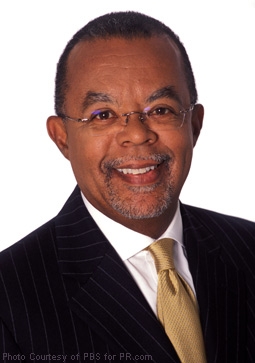
Henry Louis Gates, Jr. is an award-winning author, educator, historian, and Ivy League professor of African-American studies. As an acclaimed voice of African-American history and ancestry, Gates is also host of the acclaimed PBS ten-part documentary series, Finding Your Roots with Henry Louis Gates. Jr. In his latest series (Gates produced and hosted three previous series for PBS), Gate’s work transcends his previous television specials where his main focus had been uncovering African-American ancestry and genealogy. Finding Your Roots expands the breadth of his research into discovering and presenting the ancestral and genealogical roots of people from all corners of the world.
Finding Your Roots has helped to trace back the ancestry and genealogy of prominent American figures of European, Asian and Hispanic, as well as African descent. From Samuel L. Jackson, Sanjay Gupta and Margaret Cho to Martha Stewart, Michelle Rodriguez and Robert Downey, Jr., a total of twenty-five public figures discovered their roots on-camera with the guidance of Henry Louis Gates, Jr. Many were astounded at the eclectic nature of their lineage. Other guests that appeared in the first season of Finding Your Roots included Barbara Walters, Kevin Bacon, Geoffrey Canada, Condoleezza Rice, Adrian Grenier, Stephen Colbert, Linda Chavez and Wanda Sykes to name a few of the outstanding individuals to sit across from Henry Louis Gates, Jr. on an incredible journey into their past.
A professor at Harvard University where he heads up the W.E.B. Du Bois Institute for African and African-American Research, Gates is carrying on the pioneering legacy of W.E.B. (William Edward Burghardt) Du Bois who was the first African-American to earn a doctorate degree from Harvard University. Du Bois’s legacy is a pillar that Gates is proud to uphold.
Henry Louis Gates, Jr., affectionately known as “Skip” by his contemporaries, had originally set out to pursue a career in law. After a brief stint at Yale Law School he elected to withdraw from the program, instead opting to focus his graduate studies on African-American history and culture. Amidst Yale’s Afro-American Studies department, Gate’s destiny took shape. With an insatiable desire to learn about and celebrate the history of his own people, Gates had found his personal and professional calling as one of the African-American community’s foremost scholars.
During my conversation with Henry Louis Gates, Jr. we discuss what sparked his interest in uncovering these ubiquitous yet long-buried roadmaps into the past, particularly those of African-American people whose roots had been severed as a result of centuries of slavery. What began as a journey of self-realization for Henry Louis Gates, Jr. has evolved into fascinating television programming. The PBS series Finding Your Roots expresses the importance of celebrating and learning from one’s past. The show also provides the educational tools to empower people of all racial, religious and cultural backgrounds to discover what is fundamentally ours to own and explore.
PR.com (Allison Kugel): Are you intent on creating the same ancestral transparency for African-Americans that every other immigrant group in the United States is able to enjoy? Is that the goal of your life’s work as an African-American scholar and with the shows you’ve produced and hosted on PBS? Intuitively I feel that it’s that dream that led you to the work of finding people’s ancestral roots.
Henry Louis Gates, Jr.: Yes, you’re absolutely right. My immediate goal is for every African-American to do their family tree. There are many reasons. First of all, I think that it’s empowering. The Temple Adelphi in ancient Greece said, “Know Thyself.” That was its motto for anyone who consulted the temple. And our motto is “No thy ancestors, know thyself.” It’s true for anybody, but it’s especially true and more powerfully true for African-Americans. We were raised with the belief, either consciously or subconsciously, that it was impossible for us to trace our roots back into slavery, first, and second, across the Atlantic Ocean. Now we know that we can do that in a manner of speaking, literally in tracing our family trees back to slavery, and in a more anonymous way, but a sure way, through our DNA. An anonymous way meaning we can’t find individual family names. Remember, this is my fourth series (Finding Your Roots on PBS) after African American Lives I, African American Lives II and Faces of America. Now, the name we will always use is Finding Your Roots (laughs).
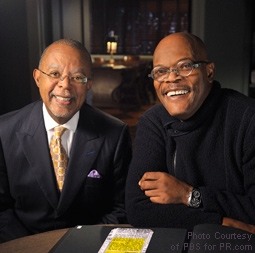
PR.com: Finding your roots is a concept that is applicable, and strikes an emotional and spiritual chord in all peoples of every race, religion and culture.
Henry Louis Gates, Jr.: Yes, I think it’s true of everybody. It’s not only true of African-Americans. But it never occurred to me when I began that I would be doing the family trees of people who are non-black. After the success of African American Lives I and II, a woman wrote to me and said she was of Russian-Jewish descent. She said, “You know, you’re supposed to be Mr. Multicultural. What are you, some kind of racist? Why don’t you do Jewish people and white people?” I went, “Oh my God! I wonder if we can do that!” I realize now we can do everybody in the world from anywhere in the world, and I want everybody to do their family tree.
PR.com: Is it the current technology for decoding DNA that holds the roadmap to our ancestry?
Henry Louis Gates, Jr.: As you’ve seen in the series, it’s also the paper trail. It depends on where you’re from, what your family was, where your family was from, what their station in life was and how lucky you are. Lucky, meaning did the church burn down? Did the county courthouse burn down? But as anyone who has watched Finding Your Roots can see, the paper trail can go back a long, long way. I want to make that clear, that it’s empowering for everybody. The paper trail for Margaret Cho, for example, went back twenty generations. For Yo-Yo Ma in the last series, it went back to a twentieth great grandfather born in 1217. That’s amazing! Robert Downey, Jr., back to the fourteenth century.
PR.com: My ears perked up when you mentioned tracing back Jewish heritage. I’m Jewish, and the Jewish people also have somewhat of a fragmented history, because we were kicked out of every country at one point in time.
Henry Louis Gates, Jr.: Absolutely, you have to see the Barbara Walters episode (Finding Your Roots, episode 3, originally aired April 1, 2012). Her episode was really a lesson in Jewish ancestry. We not only found her original shtetls (19th century Orthodox Jewish communities in eastern Europe) on her mother’s side and her father’s side, but we also found her original name, Waremwasser, which means “warm water.” I walk people through how we did this research. I go to the Jewish cemetery in Newark, New Jersey and find her grandparents’ grave. Traditional Jewish headstones in Hebrew will have the name of the deceased, and their parents. And there are these huge databases now, and in many, many Jewish cemeteries, the headstones have been digitized. You can type in the name of the ancestor and it will show you the headstone.
PR.com: During and after World War II, many Jewish and even some non-Jewish people, were meticulous about preserving many records from that particular time period in an effort to help people to track down loved ones that they had been separated from.
Henry Louis Gates, Jr.: We have seven people who are of Jewish descent in this [1st season of] Finding Your Roots, out of twenty-five people; meaning either Jewish on both sides or Jewish on one side. I am really proud of our work with Jewish ancestry, because most people don’t know unless the person is of German Jewish descent. And I’ll tell you something funny. When I decided that I would do everybody in the world, the genealogist said, “I’m going to give you some advice off the record. Don’t do Eastern European Jews. They’re as hard to do as black people who were descendant from slaves.”
PR.com: (Laughs) Exactly, it’s true.
Henry Louis Gates, Jr.: He said, do German Jews. The Germans kept fantastic records even in the worst times.
PR.com: I just watched a great deal of your finale episode where you research the Hispanic heritage of actors Adrian Grenier, Michelle Rodriguez and broadcast journalist, Linda Chavez.
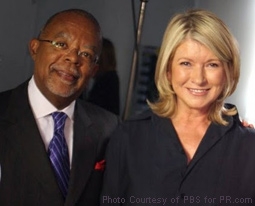
Henry Louis Gates, Jr.: That one is full of surprises, both on the paper trail and in terms of DNA. I have Michelle Rodriguez guess her DNA and it turns out that she is 21% black and only 6% Native American. Just like everybody from The Dominican Republic she’s half Puerto Rican and half Dominican, and she thought her Native American ancestry was much higher. This is a myth of many black Americans. Black Americans think they have a high percentage of Native American ancestry. And the people from the Dominican Republic on the east side think they have a large amount of Taino ancestry, and they don’t. The Taino people were reduced to 500 people by 1550, because of Columbus and the people who came with him and the diseases they brought with them, particularly smallpox. But they all have a much higher percentage of African ancestry than they ever thought they had, or wanted to have (laughs).
PR.com: Adrian Grenier who is of Hispanic origin on his mother’s side, did have some considerable Native American ancestry, correct?
Henry Louis Gates, Jr.: Both with Linda Chavez and with Adrian Grenier there were stories about Native American ancestry. The stories weren’t precisely right, but we found out that the stories were true. Linda’s seventh great grandmother was kidnapped by the Pueblo during the 1680 Pueblo Revolt, and held captive. Clearly her daughter was a Pueblo Indian. Similarly, with Adrian Grenier, they thought they were Apaches, but his fourth great grandfather, a man named Jose Ramirez, was captured by the Comanches and grew up around the Comanches. I think Linda Chavez’s story about the Conversos, the Crypto-Jews, that’s what you ought to be all over.
PR.com: I find it fascinating how many people actually have a “hidden” Jewish bloodline in their ancestry.
Henry Louis Gates, Jr.: Here she is raised a Roman Catholic, falls in love with a Jewish man, converts to Judaism and it turns out she’s descendant from Jews anyway. She is descendant from people who converted, who were forced to convert. Most Americans don’t realize that the 1492 [expulsion of the Jews from Spain] was a terrible day in the history of the Jews on the Iberian Peninsula. We celebrate Columbus, but that same year Ferdinand Isabella expelled the Jews. If you didn’t want to die and you were Jewish you had to be Catholic. If you didn’t really want to be Catholic you had to pretend to be Catholic. They were called Crypto- Jews or Conversos. It turns out that Linda Chavez is descendant from one of those people. Not only did we find the paper trail, but we found that in her DNA she was 20.87% Jewish.
PR.com: That’s not a sliver of Jewish ancestry, that’s a lot (laughs)!
Henry Louis Gates, Jr.: That’s a lot, man!
PR.com: Would many Caucasian people be surprised to find out that they actually have traces of African DNA or Asian DNA? Is that a common occurrence at all?
Henry Louis Gates, Jr.: A famous writer said to me, and I won’t quote him exactly, but he [essentially] said that this is the first time in history, on my series (Finding Your Roots) where white people are disappointed that they don’t have black ancestors. They go, “Oh, I just want a little bit!” (Laughs) I was talking to a scientist at 23andMe, and she told me at lunch two days ago that about 5% of the white people they test have a significant amount of African ancestry. We haven’t found any [on the show]. I’m praying for one, and we’re busy planning for season two. We’re picking guests now and we’re going to keep it going as long as PBS keeps us on the air. It’s sad that the show Who Do You Think You Are? was cancelled.
PR.com: When I first caught your show, Finding Your Roots, on PBS I actually mistook it for the show, Who Do You Think You Are?, which was produced by Lisa Kudrow for NBC. It took a few moments to realize there were actually two shows covering this topic. From the first episode of Finding Your Roots my husband and I didn’t move from our seats; we were riveted. We’re both history buffs.
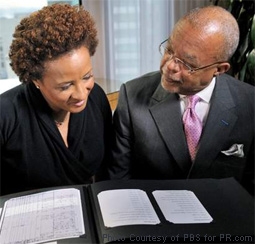
Henry Louis Gates, Jr.: Thank you. The national average is that 10 million people watched the first four shows. We’re averaging 2.5 million viewers. For PBS, that’s unheard of! Our show came before the NBC one. Remember, this is our fourth show, but it’s the first one called Finding Your Roots. The first three were actually four-hour specials. African American Lives I had Oprah Winfrey and Quincy Jones; African American Lives II had Morgan Freeman, Chris Rock, Tina Turner; Faces of America had Mike Nichols, Yo-Yo Ma, Kristi Yamaguchi and Meryl Streep, and they were huge. But nothing was as big as this weekly primetime show, which is great for us.
PR.com: I think there’s a need in people to reconnect. Now, with globalization, families are spread out and people are somewhat out of touch with their cultural roots. In centuries and decades past, cultural roots were something that people really clung too, and held dear. Maybe we’re trying to find our way back to that.
Henry Louis Gates, Jr.: I think you’re absolutely right. There is a burning desire. People are frightened. People feel that the world has changed so much. The old certainties are gone. I grew up in a paper mill town. Many of my friends went to work in the same paper mill that their father’s worked in and their grandfathers worked in, and they expected that that’s how life would be.
PR.com: And the stories were much easier to pass down from person to person, generation to generation…
Henry Louis Gates, Jr.: Because we didn’t leave, we didn’t move. But on the other hand with immigrants, the children remember what the fathers want to forget. The immigrant generation, they wanted to forget the language, forget the food because they wanted their kids to be Americans. Then there are the grandchildren who are hungry for roots and go back and resurrect everything. What we saw when I was growing up, I grew up in an Irish and Italian paper mill town, and my classmates were not celebrating their Irish and Italian heritage. They were all Roman-Catholics, but they weren’t into learning Italian and so forth. Now people want to celebrate their immigrant roots because we’re all Americans now.
PR.com: How would the average person who sees your show, Finding Your Roots, and wants to do that for themselves, where would they begin?
Henry Louis Gates, Jr.: They can go to Archives.com and Ancestry.com. Those are by subscriptions. Get it for one month, just type in the name of your ancestors and it tells you which records have been digitized. In addition, go to local genealogy societies. If you’re in New York or Boston, or a big city, there is the New England Genealogical Society, the New York Genealogical Society. These people exist to help you find your ancestors, for free. And we use three DNA companies [on the show]. 23andMe, Family Tree DNA, and if you’re black AfricanAncestry.com.
PR.com: If people have identified their whole life as being one race, for example, if someone identifies as black, Chinese, Italian, Puerto Rican, or whatever it may be, is it frightening for them to then find out that they’re actually not one thing, that which they’ve attached their identity to for all of those years?
Henry Louis Gates, Jr.: From my experience with all of these people I’ve done for these four series, no. First of all, they are what they are, and they are riveted… and the more diverse the better. “I’m pure English” or “I’m pure German,” or “I descended from the Mayflower.” Now people want diversity. If I tell someone they’re 100% white, they’re disappointed, you know (laughs)?
PR.com: Was there an example in particular that really surprised the guest?
Henry Louis Gates, Jr.: Stephen Colbert was one of my favorite guests. He was this super ultra-Irishman, but it turns out that one important line that came to America very early was a Lutheran German, and it blew his mind. He couldn’t believe it, and he loved it, he loved it! And this is very important what I am about to say; no African-American that we have ever tested is 100% black, none! The average African-American is about 20% white in their DNA. Amazing!
PR.com: That’s a foregone conclusion, isn’t it? Because of slavery?
Henry Louis Gates, Jr.: Yeah, but when you look at dark black people, people didn’t think that was the case. Chris Rock is 20% white. Don Cheadle is 19% white. That’s an amazingly high percentage.
PR.com: Back in February, which is obviously Black History Month, I happened to see the mini-series Roots being offered on my television’s On-Demand menu. I decided to watch all of it, since I had never seen it before, and it’s a classic. Although I had obviously learned about slavery in textbooks, I never made the emotional connection until I saw it on the screen, and then I got it! And I really feel like that mini-series should be mandatory curriculum for anyone who resides in the United States.
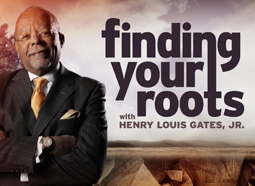
Henry Louis Gates, Jr.: Me too, and at the time it was. The whole country watched. You cannot imagine the phenomenon of Roots in 1977. Everybody watched it. Other than during a crisis when everybody is watching the president speak, none of us has ever been part of anything like that. The whole country watched the mini-series for a week. Everybody was talking about it, all day long. It was phenomenal.
PR.com: If you look at a situation like the Trayvon Martin case, we are clearly still carrying some of that baggage as a nation.
Henry Louis Gates, Jr.: No question, we’re carrying a lot of that baggage. My series, Finding Your Roots, shows that, one, we’re all immigrants, and two, we are all cousins. Genetically, we are all cousins. That is of utmost importance. If I have a larger humanitarian hope for this series, you want to entertain people but I’m a professor and I want to teach people. The larger political point that the series makes is that either through forced sexuality or voluntarily, and we have examples of both…
PR.com: There was more interracial and inter-cultural procreation than we realize.
Henry Louis Gates, Jr.: Branford Marsalis, he descends from a white German man who shows up in New Orleans in 1851 and lives with a black woman named Mertay Valentine. They had seven kids, they died two years apart, and they’re buried together. He had no idea, but there it was. That was as close to a legitimate relationship as you can get.
PR.com: Because Mertay Valentine was a free black woman.
Henry Louis Gates, Jr.: On the other hand, [Brown University] President Ruth Simmons descends from the master who owned her ancestor. Can you have a relationship of equality with someone you own? Black people debate that all the time. But the point is, we are a mixed people.
Episodes from the first season of “Finding Your Roots,” with host Henry Louis Gates, Jr., are now available online at PBS.org.
